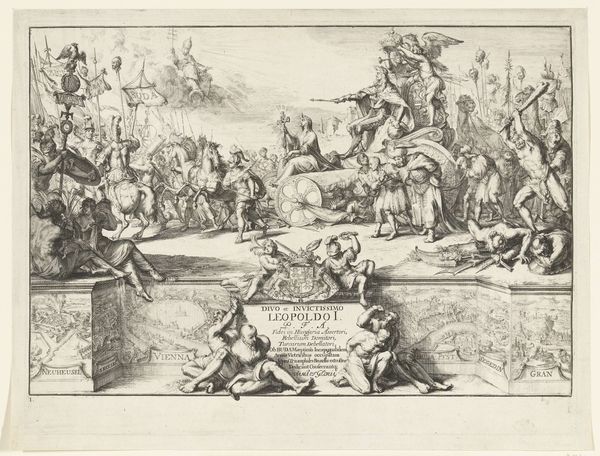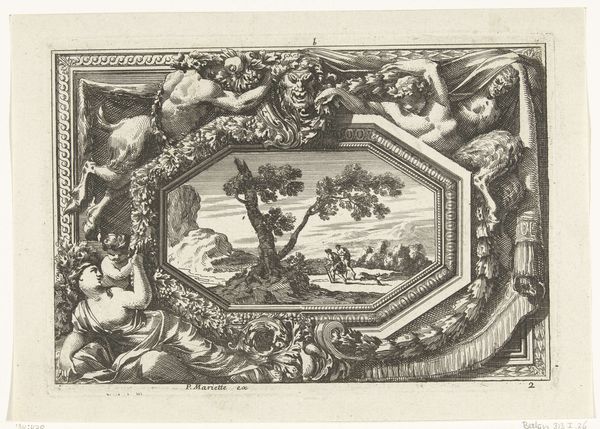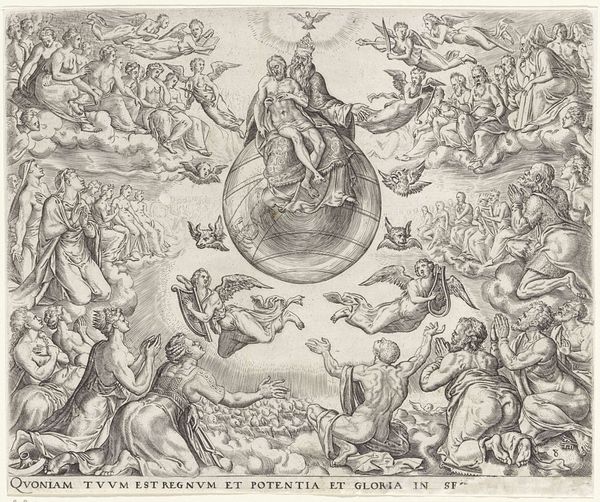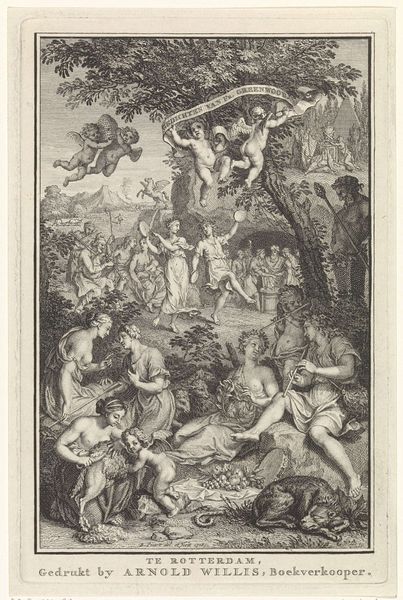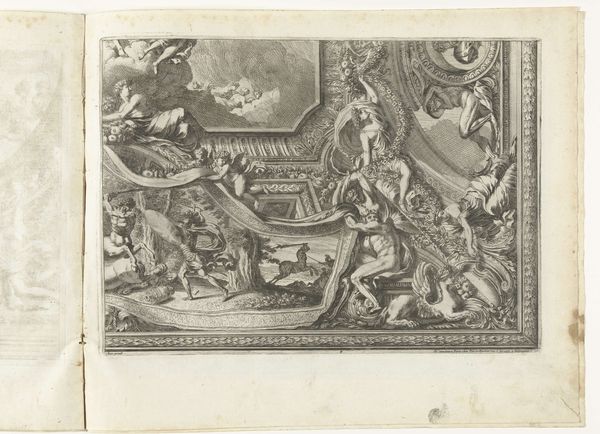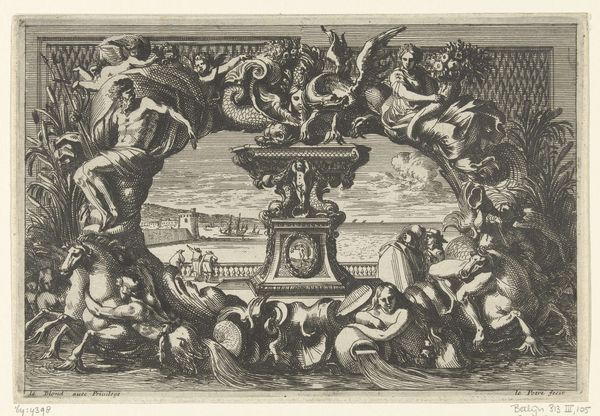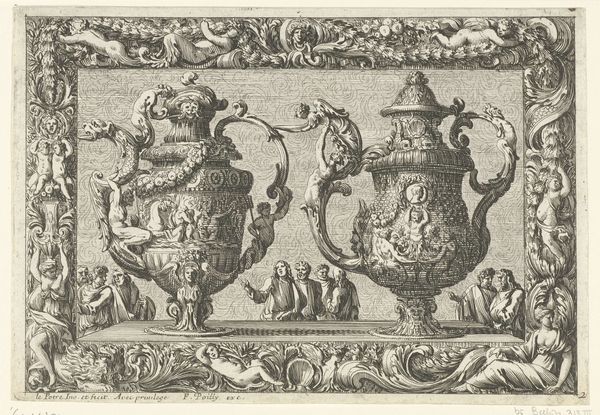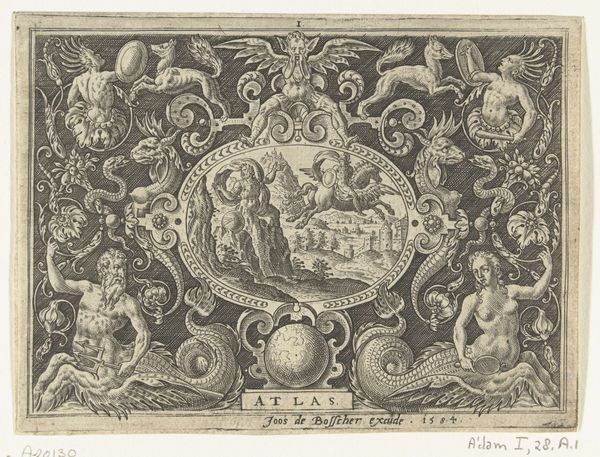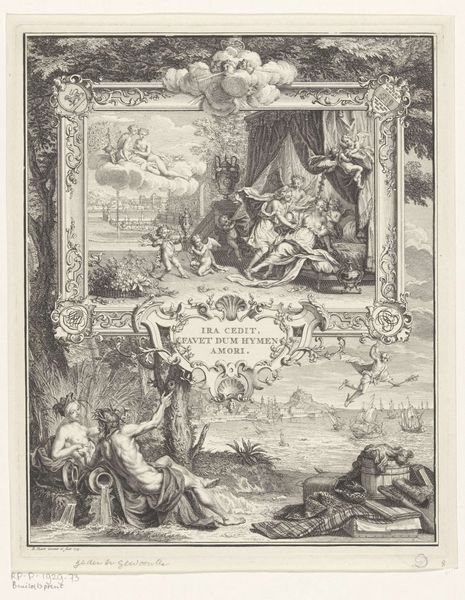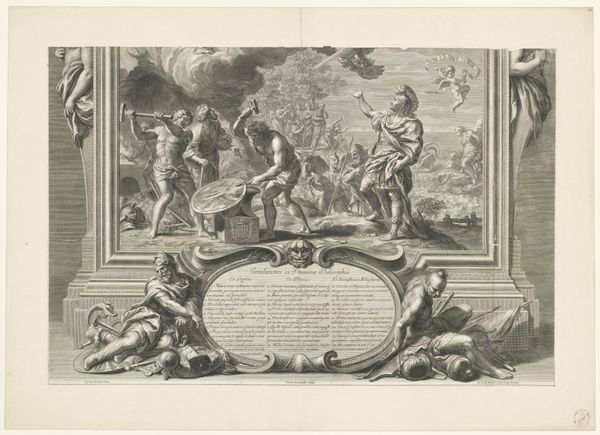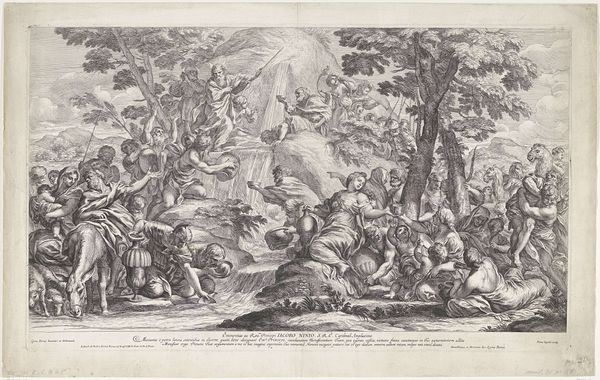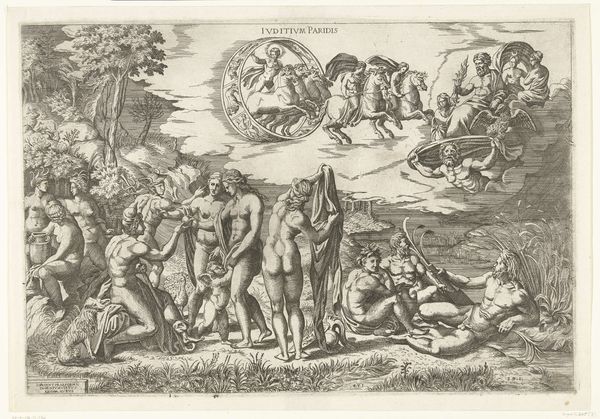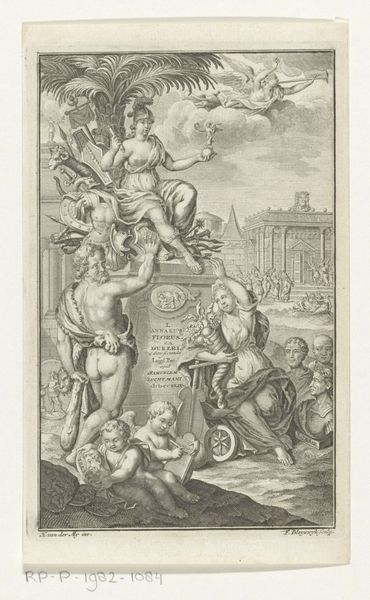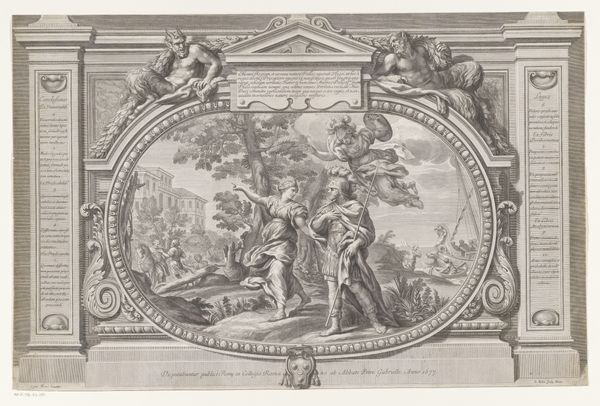
drawing, ink, engraving
#
drawing
#
narrative-art
#
baroque
#
pen drawing
#
pen illustration
#
pen sketch
#
old engraving style
#
ink
#
history-painting
#
engraving
Dimensions: height 150 mm, width 198 mm
Copyright: Rijks Museum: Open Domain
Editor: So, here we have Romeyn de Hooghe's "Ezra, angel en verschijning van een vrouw," made between 1705 and 1715. It’s an ink drawing, or rather an engraving, depicting a complex biblical scene. It feels quite…chaotic to me, with lots of small details competing for attention. What do you see in this piece? Curator: I see the skilled hand of a craftsman deeply embedded within the social and political currents of his time. Note the very act of engraving – the labor involved in meticulously transferring an image onto a metal plate, capable then of producing numerous reproductions. This speaks volumes about accessibility and dissemination of ideas in the early 18th century. Editor: So, the engraving process itself is key? Curator: Precisely! Consider the economics: the cost of materials – the copper plate, the ink. De Hooghe wasn't simply creating art; he was participating in a system of production and consumption. Who was his audience? How did these printed images circulate and what ideas about religion or social order were they intended to support? It speaks to the intersection of craft, commerce, and ideology. And do note the precision of the lines themselves, each stroke deliberate, representing countless hours of skilled labor. Editor: I see, so the medium itself is part of the message, impacting its accessibility and therefore, its cultural influence. It also changes the value because copies can be made and shared! Curator: Exactly! Think about the workshops where such prints were created – the division of labor, the training of apprentices, the hierarchy inherent in the artistic process. What does this tell us about the lives and livelihoods of the people producing this imagery? Editor: I hadn't considered it from that angle. I guess analyzing the medium opens up a whole new way of thinking about the artwork's context and impact. Thanks!
Comments
No comments
Be the first to comment and join the conversation on the ultimate creative platform.
